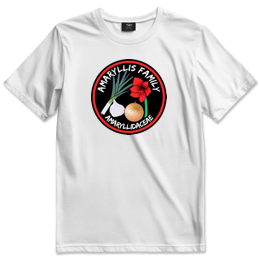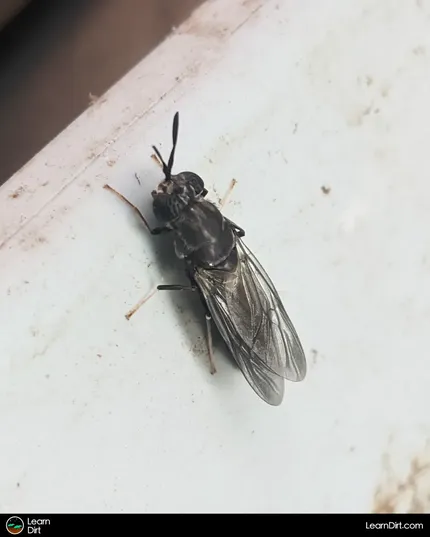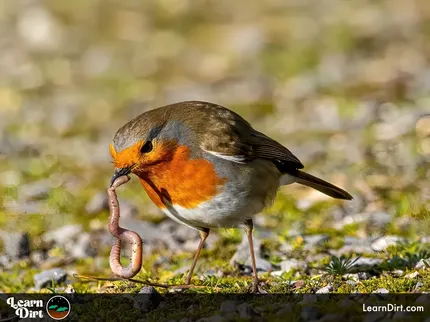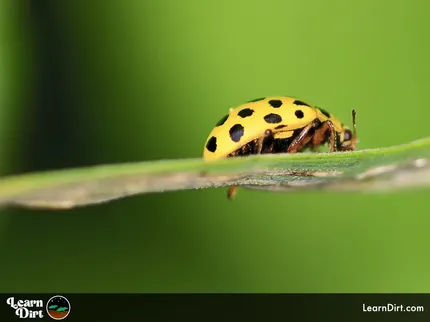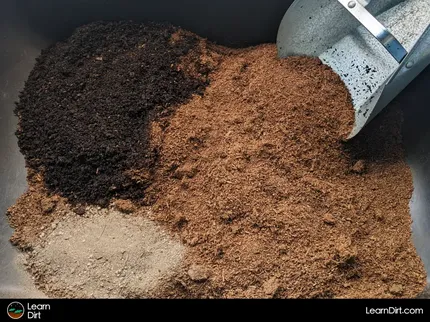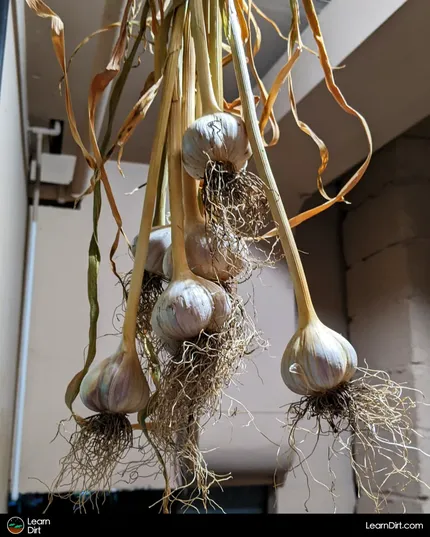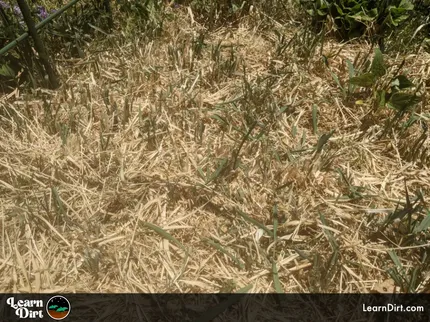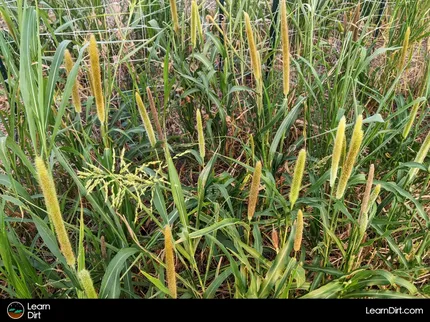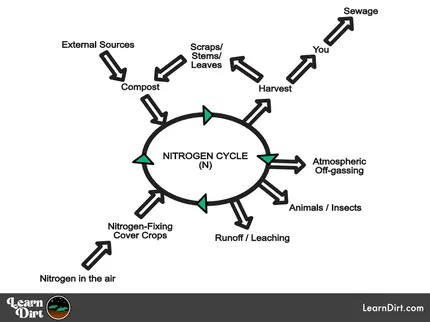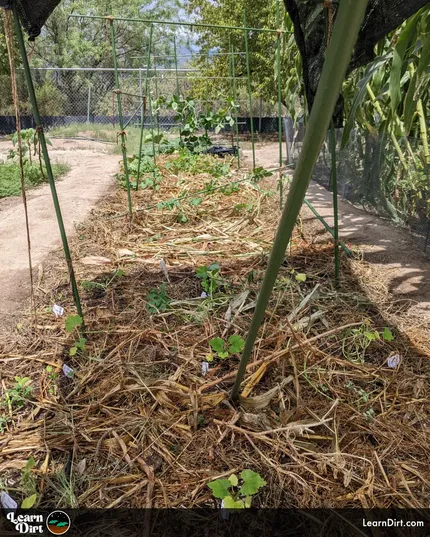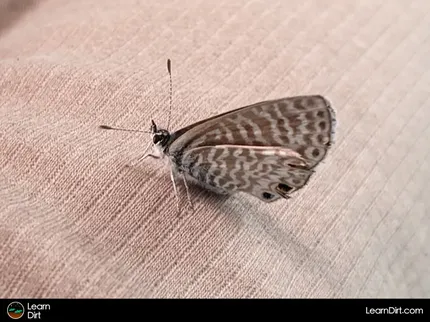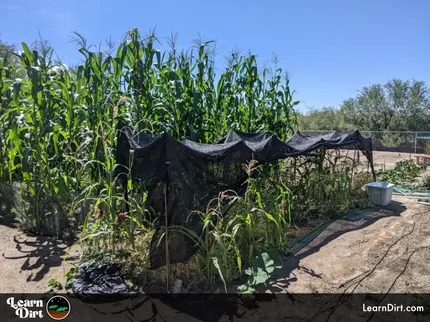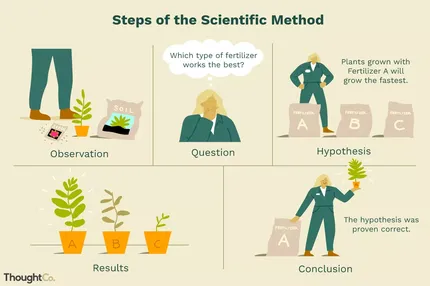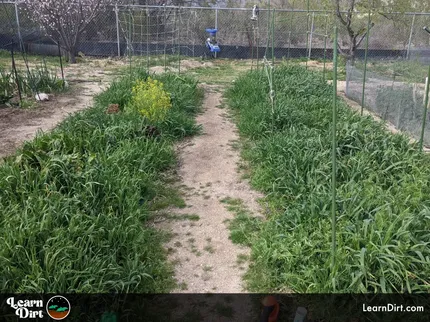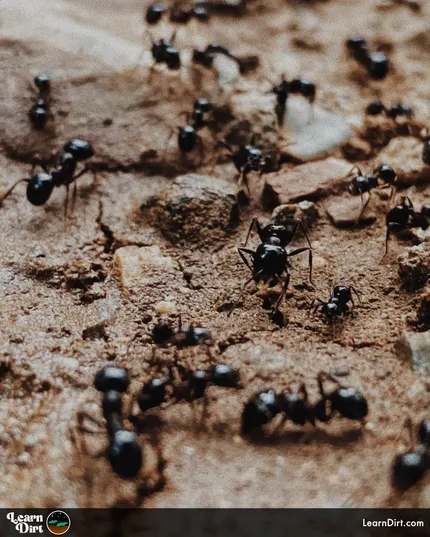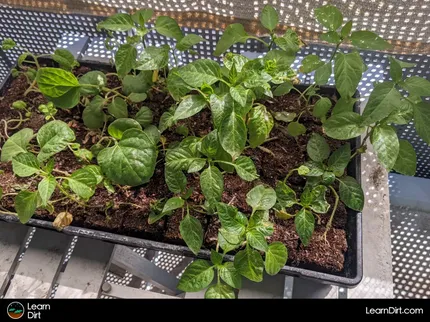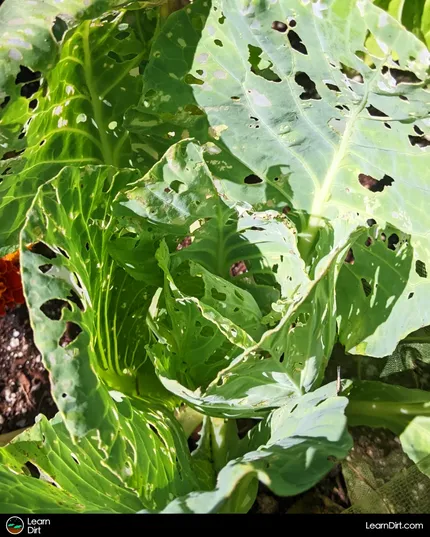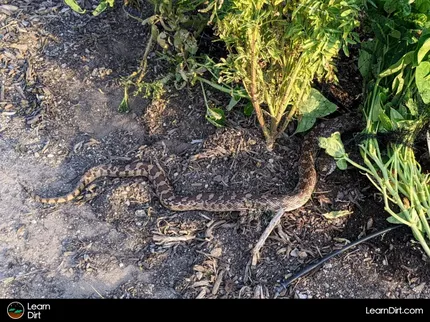Table of Contents
- Importance of Beneficial Insects
- List of Beneficial Insects
- Attracting Beneficials to Your Garden
- Introducing Beneficial Insects Into Your Garden
- Common Pitfalls to Avoid
- Things to Be Aware Of
- Final Thoughts...
* Our articles never contain AI-generated slop *
For organic gardeners, beneficial insects are a critical aspect of your garden pest control and ecosystem balance.
So what are beneficial insects anyway?
Here we'll dive into the wonderful world of beneficials such as predatory insects.
Disclaimer: This post may contain affiliate links. Refer to the privacy policy for more information.
Let's look at the important roles these creatures play in organic gardens, their use cases, and how to attract them...
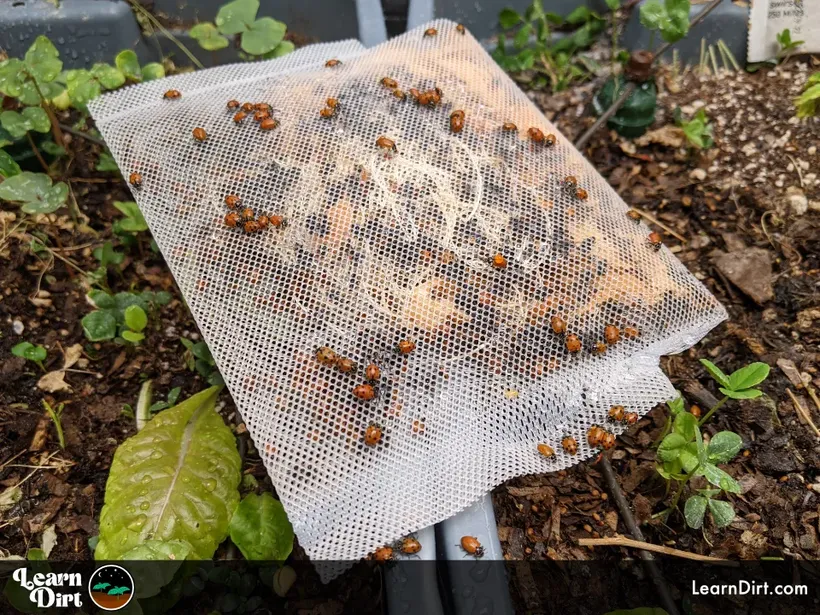
which an organic garden can benefit from.
Beneficial predators make the best garden allies and do more to combat pests than you could ever hope to yourself. Embracing them opens up an entire new perspective on pest management.
If that sounds interesting to you, keep reading.
We'll go over common pitfalls, some of the most important beneficial bugs, and their places in your garden.
Importance of Beneficial Insects
Beneficial insects provide the predatory pressure which keeps pest populations in check.
They are a balancing force in your organic garden which make sure that things don't get out of hand.
Join The Grower's Community
A free & open space for anyone who is passionate about cultivation 🌱
Check It Out!
It's very difficult for an organic outdoor garden to thrive without a healthy population of beneficials.
From predation to pollination to parasitization, beneficial insects have numerous ways to help balance pest populations.
If you can entice them into your garden (or introduce them, carefully) you can avoid the need for toxic synthetic pesticides. That junk can easily poison beneficials, waterways, invertebrates, as well as you. Beneficial insects are the solution to avoiding pesticides and finding natural balance in your organic garden.
All praise unto the predator bugs, they're absolute fam!
List of Beneficial Insects
While there are too many beneficial insects to name out there, and you'll want to do your own research about your local species - let's talk about a few of the most-common ones.
Many of these have broad ranges, or else are commonly purchased and introduced into gardens to help with pests or pollination. Each with their own unique set of strengths and applications.
The most common example that many people are familiar with is that ladybugs are known for devouring aphids. They also eat some mites and various other insects.
Likewise, lacewings do a great job at managing caterpillars, whiteflies, and mealybugs.
Praying mantises are a super popular predator for their ability to eat just about any bug that crosses their paths.
Some of my personal favorite garden predators are parasitic wasps, hoverflies, and ground beetles.
Shout-out to bees, worms, and black soldier flies! We can't forget that some of the hardest-working gardeners out there are the bugs.
Attracting Beneficials to Your Garden
The very best way to get beneficial insects into your garden is to entice them in.
By offering food, habitat, shelter, and water, you can attract all the beneficial bugs you'll ever need into your organic garden.
If you'd like to learn all about attracting bennies to your garden, jump in here.
Introducing Beneficial Insects Into Your Garden
If you're going to be introducing beneficial critters to your garden, it's important to do so carefully.
Remember that ecosystems are complex, and there can be unanticipated consequences to introducing non-native species. See this article on Regenerative Gardening And Systems Thinking to learn more about unintended consequences in complex systems.
It's crucial that you do your research before introducing random predator insect species into your local ecosystem. Just because you can purchase numerous non-native species of beneficial bug online doesn't necessarily mean you should. Really think through your actions and how they may affect your local ecology here if you do decide that introducing beneficials is right for you.
Avoid pesticides and other synthetic chemicals which can harm beneficials if you are going to introduce them.
Be sure that you provide the conditions needed for predators to survive. Consider temperature, humidity, cover, shelter, water, supplemental nutrients, etc. when introducing beneficials.
Some beneficials can be purchased at your local garden center or online, while others can be found among your local nature and brought into your garden.
Dig Cool Merch?
I've had great experiences with Nature's Good Guys. I'm not sponsored by them, but find the ability to buy very small amounts of beneficials with quick shipping to be super convenient. Lots of other sites seemed to want me to buy WAY more bugs than I could ever need.
Just make sure you put "Do not include ladybugs" in your order comment if you don't want ladybugs, otherwise you might get some added to your order for free!
Common Pitfalls to Avoid
While beneficials are of critical important to organic garden ecosystems, there are some common pitfalls you should be aware of.
The biggest problem with the introduction of any species to an ecosystem is the potential for them to be invasive. Take this pitfall seriously, as you do not want to accidentally introduce a species that takes over your local environment and throws off the balance of the natural ecology.
Another common mistake is simply introducing the wrong bug for the job. Be sure to research and match your predators to your pest populations if you want effective control.
Releasing too many beneficials at once can also cause problems in the form of ecosystem imbalance.
Things to Be Aware Of
When introducing beneficial insects to your garden, it's essential to be aware of their needs and behavior.
Some insects like ladybugs will stay in your garden only if there is enough food and shelter available. I've found that providing flowers can help give them a secondary food source when prey populations dwindle. My local ladybugs seem to really dig buckwheat flowers as food, but your mileage may vary.
Praying mantis might also move on once they've slayed all of the available prey.
It's important to remember that beneficials are living creatures and just like each of us they require a healthy environment in order to thrive. This means consciously avoiding the use of chemicals and pesticides that can harm them and their food sources!
Consider shrubs or hedgerows around your garden, which make a great chill spot for beneficials of all kinds. Hedges give beneficials a retreat from the prey-infesting fields of battle (your garden lol jk... sorta)
Final Thoughts...
So we learned that introducing beneficial insects to your organic garden is an excellent way to control pests and promote a healthy ecosystem.
Choose the right bugs and give 'em with the right habitat and conditions.
They'll help rid you of any reliance on junk pesticides and chemicals while promoting a thriving organic garden.
Remember to be patient, do your research, and be mindful of the needs of these valuable creatures.
I believe in you and know that you can cultivate a garden that's well-balanced, diverse, pesticide-free and absolutely THRIVES!
That's all for now, thanks for reading!
If you have any questions, comments, or would like to connect with fellow gardeners, head on over to the forum and post there.

